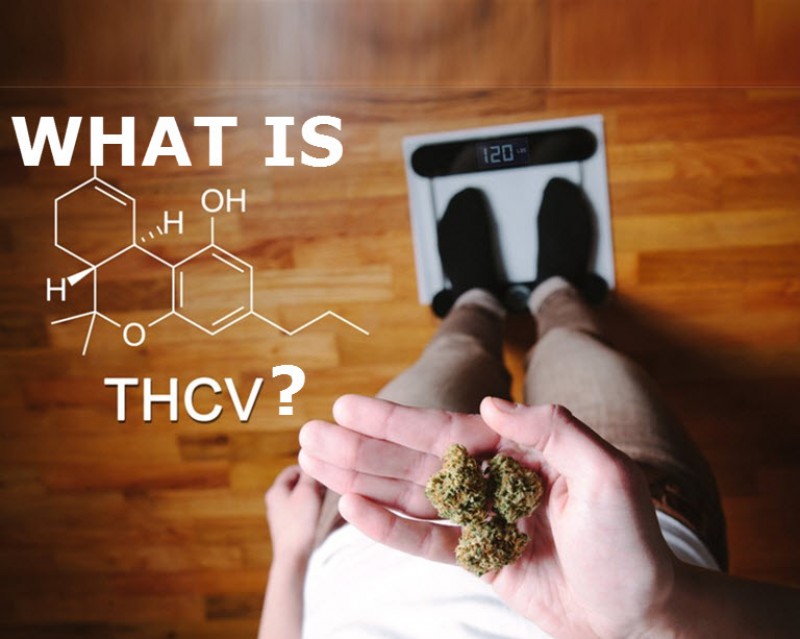What Is THCV? The Cannabinoid For Weight Loss, Diabetes, Epilepsy, and Parkinson’s Disease
What is THCV and Why is it so Amazing? from CannabisNet on Vimeo.
There are so many cannabinoids in cannabis that still need further understanding and research. Each cannabinoid is so important because they have their own unique characteristics. Aside from THC and CBD, THCV is another important cannabinoid that you should know about.
THCV, which stands for tetrahydrocannabivarin, is a compound that has fascinating medical and therapeutic properties. THCV shares the same psychoactive and molecular properties as THC, which means it can get you high. Both cannabinoids also affect the same receptors in the body, but in different ways.
Early studies show that THCV has 25% the potency of THC, which means you’ll need to take higher doses to obtain the same high and health benefits of THC. It’s also thought that this exact cannabinoid might be responsible for giving sativa strains their energizing and uplifting properties.
Here are the health benefits of this unique cannabinoid:
-
Weight loss: Animal studies have shown that taking pure THCV can suppress the appetite, resulting in weight loss. Researchers discovered that mice who were administered with THCV showed less interest in food, and didn’t eat as much as the other subjects who weren’t administered with the cannabinoid. But when the THCV was administered together with THC, the animal subjects didn’t lose weight nor were their appetites suppressed.
-
Epilepsy: It’s well known that cannabis is an effective natural medicine for convulsions, seizures, and epilepsy. We know today that CBD and THC are both beneficial in their own ways when it comes to treating these disorders. New research tells us that THCV also has anti-convulsant properties. Scientists think that this is the case because THCV interacts with the nervous system in a unique way. THCV binds to CB1 and CB2 receptors, and this activity is responsible for helping manage too much excitement in the brain which leads to convulsions, seizures, and epilepsy.
-
Diabetes: In a study conducted by GW Pharmaceuticals, scientists analyzed the impact of CBD and THCV among patients diagnosed with type 2 diabetes. The trials involved 62 patients, each of whom were administered with 5mg of THCV an 100mg of CBD. The researcher analyzed the compounds individually, but also in a 20:1 ratio of CBD to THCV. The results showed that both cannabinoids were effective in reducing blood glucose levels, improved fasting insulin levels, reducing inflammation markers, and lowering blood pressure. Despite the fact that these are just preliminary trials, this shows promise that there are more cannabinoids in cannabis that are just as valuable in treating disorders such as diabetes. Another animal study showed that although THCV treatment alone didn’t reduce food intake or lower weight in obese mice, this cannabinoid was effective in making the animal subjects more insulin sensitive.
-
Parkinson’s Disease: THCV is also promising in the treatment of Parkinson’s Disease. The British Journal of Pharmacology published a study in 2011 analyzing the impact of THCV on the motor processes of mice who were modified to exhibit symptoms of Parkinson’s Disease. The researchers found that THCV is effective in blocking the CB1 receptor but it also stimulates the CB2 receptor. Since the CB1 receptor affects the nervous system more, while the CB2 focuses on the immune system, THCV shows promise in treating this disease because the findings showed that it decreases the activation of CB1 receptors. Overall, the rats who were given THCV showed significant improvements in motor control while also showing signs that Parkinson’s Disease was delayed. After being given more doses, THCV also showed promise in preventing brain cell death, the same cells that are responsible for the presence of Parkinson’s Disease symptoms.

Where Can You Find Strains High In THCV?
If you’re interested in these health benefits, you can look for strains that are high in THCV. While most cannabis strains contain very little amounts of THCV, it can be challenging to find strains that will give you these specific effects. According to Steep Hill testing labs, THCV is more common in landrace sativa strains originating from south and central Africa. Durban Poison is recognized as one of the strains with the highest content of THCV. If you’re having a tough time looking for African sativas, ask your budtender about parent genetics since many strains produce hybridized African genetics that may result in better THCV results. For example, Cherry Pie can express THCV benefits because of the fruit like combination of the strain.
OTHER STORIES YOU MAY ENJOY...
WHAT IS THCV EXPLAINED, CLICK HERE.
OR...
WHAT IS THC, NEW FACTS AND FIGRUES, READ THIS..
OR..
WHAT IS CBG AND HOW DO YOU GET IT, READ THIS.









